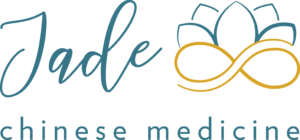Acute Pain
The treatment of pain is what Acupuncture is best known for. Its pretty much so well known at this stage that it almost goes without saying that Acupuncture is the best known, most effective, non pharmaceutical treatment available for the treatment of pain, be it muscular or nerve inflammation related.
A natural pain killer
Pain management and resolution is pretty much an Acupuncturist’s home turf. This is partially due to Acupuncture releasing endogenous opioids, the natural ‘pain killer’ hormones of your own body. These have been proven stronger than exogenous, external pain killers. In fact Acupuncture was first introduced to the western world when doctors visiting China observed surgery happening without anaesthetic! (Don’t try that at home!).
Acupuncture has actually been shown as number 1 or number 2 for back and neck pain specifically, which is unsurprising to us Acupuncturists but nice for everyone else who’s not sure where to go for pain relief.
The studies have been done, the evidence is in, and Acupuncture is the number one, go to, best proven non drug treatment for pain – as recommended by the Cochrane review, Mayo clinic, Harvard Medicine, and the Joint Commission for Pain Management (USA) – among others
What is Acupuncture good for?
Since ‘Pain’ is such an unspecific descriptor, I thought I’d list a few things below which Acupuncture performs well for. There’s a great overall review here if you are interested.
- Low back pain
- Sciatica
- Neck Pain
- Osteoarthritis
- Shoulder pain / Impingement
- Frozen shoulder
- TMJ (Temporo Mandibular Joint)
- Headaches and Migraines
- Chronic pain syndromes, such as Fibromyalgia
From a Western biomedical perspective, Acupuncture has been proven to:
- Relieve pain – by delivering analgesia via alpha-adreno-receptor mechanisms
- Reduce inflammation – by promoting release of vascular and immune-modulatory factors
- Improve muscle stiffness, joint mobility and dispersal of swelling – by increasing local microcirculation
- Accelerate repair of injured body tissue
- Improve function and mobility
- Relieve stress and promotes wellbeing, thereby facilitating recovery – by stimulating nerves located in muscles and other tissues, which leads to release of endorphins
Is Acupuncture best than pharmaceutical pain killers?
A recent trial across three hospitals in Sydney compared acupuncture to strong pain killers: Endone, Panadeine Forte, Voltaren and Valium. The Acupuncture treatment was not only equivalent to these drugs, but patients who had acupuncture tended to recover and leave the hospital earlier! Obviously, unlike pharmaceutical drugs, Acupuncture also has minimal side effects.
* There is now a frequent attempt by other professions, not registered as Chinese Medicine practitioners or Acupuncturists, to claim these results with ‘Dry needling/ western acupuncture’, which is a weekend course of training performing UNDER remedial massage in clinical studies, with minimal evidence of efficiency and numerous safety concerns due to minimal training – less than 8 hours hand’s on!
I’ve written detail here for your clarity: for the most effective treatment and Real Acupuncture, always be sure to look for the title of “Acupuncturist” – and the training that goes with it.
References
- The Immediate Analgesic Effect of Acupuncture for Pain: A Systematic Review and Meta-Analysis 2017
- Acupuncture vs intravenous morphine in the management of acute pain in the ED 2016
- The Efficacy of Acupuncture in Post-Operative Pain Management: A Systematic Review and Meta-Analysis 2016
- Acute pain management: scientific evidence (fourth edition) 2015
- Understanding Central Mechanisms of Acupuncture Analgesia Using Dynamic Quantitative Sensory Testing: A Review 2013
- Acupuncture analgesia: Areas of consensus and controversy 2011

